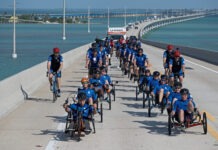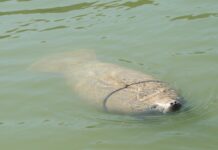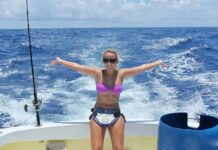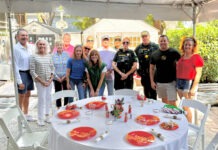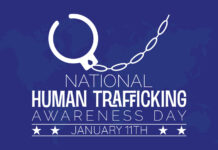Does the name Cay Clubs ring a bell?
Anyone who lived in the Florida Keys from 2004 to 2014 likely recalls the now-defunct real estate investment and development company that was buying up scores of properties in the Caribbean, Nevada and Florida, including several purported resort projects in the Florida Keys.
Cay Clubs had plans for properties such as Sombrero Cay Club in Marathon, Marathon Manor nursing home, Harris School in Key West, A & B Marina, Turtle Kraals and Half Shell Raw Bar restaurants in Key West and several vacation rental resorts in the Upper Keys, to name a few.
Just as memorable was the Clearwater-based company’s very public downfall that started around 2013, when the U.S. Department of Justice labeled the whole operation a Ponzi scheme and indicted the top executives, including CEO and mastermind Fred Davis “Dave” Clark, who was arrested in Central America while moving from Honduras to Panama.
Clark was charged with conspiracy and obstruction charges, along with mail fraud and wire fraud. He was sentenced in 2016 to 40 years in prison and ordered to repay $179 million in restitution.
Despite the 40-year sentence, Clark is now a free man living in Orlando, according to a recent article from the Tampa Bay Times.
Former President Donald Trump on Jan. 13 commuted Clark’s sentence — a week before Trump left office.

The commutation order states, “The ends of justice do not require (Clark) to remain confined until his currently projected release date of August 14, 2048 and the safety of the community will not be compromised if he is released.”
This despite a July 31, 2020 judge’s order denying Clark the bond he had requested in May 2020 because Clark was a significant flight risk, the judge’s order states.
Clark had requested bond due to his risk of contracting COVID in the Federal Correctional Complex, where he was imprisoned near Wildwood, Florida.
In denying his bond, the judge wrote that after Clark was indicted in 2013, he “moved his family overnight from the Cayman Islands to Roatan, Honduras upon his belief that the Securities Exchange Commission could reach his assets in the Caymans,” the Tampa Bay Times reports.
Clark’s commutation does not eliminate the $179 million Clark was ordered to repay in restitution, and the commutation did not include David Schwarz, Clark’s business partner who was also sentenced to 40 years in prison in 2017 for his role in the scheme, the Tampa Bay Times reports. Schwarz was released on bond on Oct. 1 pending his appeal, according to court records.
“Beginning in 2004, Clark raised more than $300 million from 1,400 investors who were promised steady rental income and an upfront leaseback payment of 20 percent of the sales price of the units.
“The operation was really a Ponzi scheme that used sales proceeds from new investors to pay overdue obligations to earlier participants, according to the U.S. Department of Justice,” the Tampa Bay Times story states.
Stay tuned as Keys Weekly continues to follow this story and reviews the Florida Keys connections to the defunct Cay Clubs.


